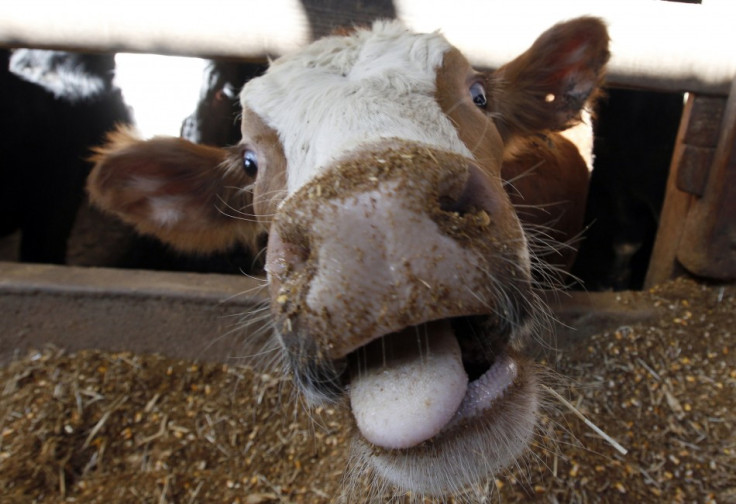Mad Cow Disease Discovered at Dairy Farm in California

A case of bovine spongiform encephalopathy (BSE), or mad cow disease, has been confirmed at a dairy farm in central California, though officials have been quick to reassure consumers that there was no danger of the meat entering the food chain.
The infected cow, the fourth case ever detected in the United States and the first since 2006, was discovered as part of a US Department of Agriculture (USDA) surveillance programme that tests about 40,000 cows a year for the fatal brain disease.
USDA veterinary chief John Clifford said the case did not represent a danger to the public and sought to reassure consumers that no meat from the cow had entered the food supply.
"There is really no cause for alarm here with regard to this animal," Clifford said.
Experts described the case as "atypical" - meaning the cow contracted the disease spontaneously, not from eating infected cattle feed.
Bruce Akey, director of the New York State Veterinary Diagnostic Laboratory at Cornell University, described the case as "just a random mutation that can happen every once in a great while in an animal.
"Random mutations go on in nature all the time," he added.
The government said in a statement said: "The US Department of Agriculture's Animal and Plant Health Inspection Service has confirmed the nation's fourth case of bovine spongiform encephalopathy in a dairy cow from central California."
"USDA remains confident in the health of the national herd and the safety of beef and dairy products. As the epidemiological investigation progresses, USDA will continue to communicate findings in a timely and transparent manner."
Mad cow disease, or BSE, is fatal to cows and humans are vulnerable to contracting a similar deadly brain disease, Variant Creutzfeldt-Jakob Disease (vCJD), by eating meat from infected animals.
The World Health Organisation has said tests show that humans cannot be infected by drinking milk from infected cows.
Despite the assurances from agriculture secretary Tom Vilsack that the finding posed no risk to the food supply or to human health, two major South Korean retailers halted sales of US beef.
According to the USDA, there were only 29 worldwide cases of mad cow disease in 2011.
Reported cases peaked at 37,316 in 1992, 99.9 percent of which were in Britain.
© Copyright IBTimes 2025. All rights reserved.






















